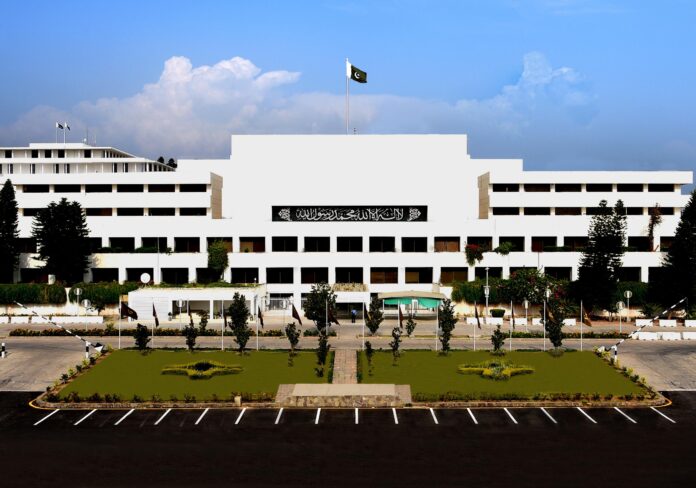- Advertisement -
ISLAMABAD, Apr 23 (APP):The National Assembly Standing Committee on National Food Security and Research met here Wednesday with Syed Tariq Hussain Member of the National Assembly (MNA) in chair.
An update on the recommendations from previous meetings was provided, said a press release.
The Convener of the Sub-Committee, Rana Muhammad Hayat Khan, presented a report to the Committee regarding the sale of counterfeit seeds and the untimely procurement and import of wheat.
The Committee decided to forward the report’s recommendations to the ministry for implementation.
The ministry informed the Committee that the licenses of 392 out of 1,200 registered companies have been canceled, and a Radio-Frequency Identification (RFID) track and trace system has been implemented to enhance transparency in seed sales.
The Committee demanded accountability not only for the companies involved but also for those responsible for their registration.
It was decided to invite the newly formed National Seed Development and Regulatory Authority to the next meeting for a progress update.
The Committee emphasized that legal action must be taken against those selling fake seeds, stating that issuing challans is not enough, and urged the ministry to engage legal experts to ensure offenders are brought to justice.
Additionally, the Committee recommended announcing a minimum support price to protect farmers from exploitation by middlemen, along with measures such as compensating farmers, enforcing penalties including up to 10 years’ imprisonment, distributing educational pamphlets, developing heat-resistant seeds, improving sowing methods, ensuring quality testing, and adopting a more proactive approach.
A complete ban on wheat import and export was also suggested. The minister informed the Committee that the Punjab government has introduced an Electronic Warehouse Receipts (EWRs) system, enabling farmers to store their crops for up to four months with the support of private banks, while the government covers 50% of the loan markup.
This initiative allows farmers to wait for better market rates before selling, protecting them from exploitation by mill owners.
Additionally, the government has permitted inter-provincial and inter-district movement of crops to enhance market accessibility.
The Committee decided to invite the National Seed Development and Regulatory Authority, provincial agriculture departments, and the Ministry to provide further updates on this initiative in the next meeting.
The ministry provided an update on wheat-related research, presented by the heads of research institutes under its supervision. During the briefing, the Chairman of the Committee emphasized that agriculture, once the backbone of Pakistan’s economy contributing 35% to the GDP, now accounts for only 20%.
A Ministry representative reported that over the past decade, wheat yield per acre has increased from 27 to 33 maunds. However, the Committee deemed this progress insufficient, considering the substantial investments from the national exchequer, advancements in technology, pesticides, research initiatives, hybrid seeds, and other supporting efforts.
They noted that half of the reported yield increase could be attributed to favorable weather, highlighting deeper structural issues.
The Committee expressed concern over the declining per capita water availability, rapid population growth, and the impact of climate change factors posing significant threats to national food security.
Despite major investments, the declining yields in major crops like cotton, wheat, and rice were labeled as a failure on the part of the ministry and the Pakistan Agricultural Research Council (PARC), with ineffective seed research identified as a core issue.
The Committee asked the ministry to present a comprehensive 20-year roadmap in the next meeting, complete with clear targets, plans, deadlines, and implementation strategies.
Additionally, PARC is required to submit a six-month progress report, including details of expenditures.
The Ministry may also update the Committee on PARC’s poor performance over the past decade, identifying those responsible and any actions taken against them within one month.
The Ministry may hold an internal meeting and propose viable solutions for the import of germplasm in the next session.
The Ministry may ensure the distribution of imported seeds across all provinces, accompanied by proper awareness campaigns and cultivation in controlled environments to assess yield variations and achieve a competitive advantage.
The Ministry may provide an update on animal science in the next meeting.
The Committee decided to focus on Kharif crops, with particular emphasis on rice in the next meeting.

